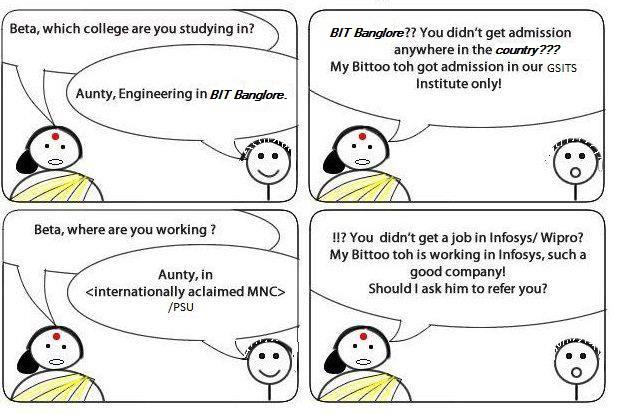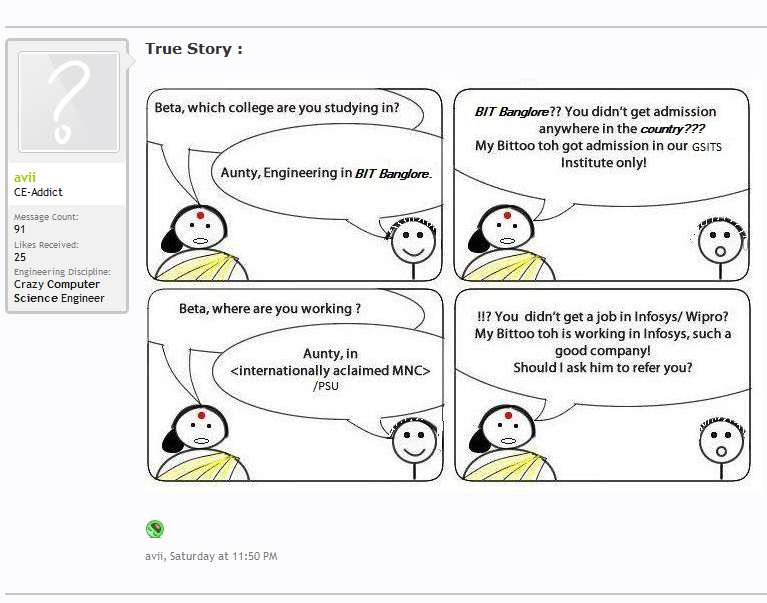^ yeah testers are no minority in IT world.
A huge proportion of the IT crowd work as testers - and they get the same position/package as the development counterpart.
Basically there are two types of testers - manual and automated.
"manual" guys test the software/product manually - from the end user POV - clicking+entering data - checking the behavior (expected and actual) - maintaining a 'boring' excel sheet - raising 'bugs' for unexpected/wrong behavior.
"automated" tester guys uses some testing software (eg QTP) for testing the software behaviors. they sometimes requires scripts (vb/python) for the same. rest same as manual testers.
Many people do not like testing - mainly because the work becomes monotonous after 2/3 cycles. People gotta check the same behavior on the same software over and over after every 'release' from the development team and report the problems. (plus maintaining the excel is kinda boring
 )
)
A huge proportion of the IT crowd work as testers - and they get the same position/package as the development counterpart.
Basically there are two types of testers - manual and automated.
"manual" guys test the software/product manually - from the end user POV - clicking+entering data - checking the behavior (expected and actual) - maintaining a 'boring' excel sheet - raising 'bugs' for unexpected/wrong behavior.
"automated" tester guys uses some testing software (eg QTP) for testing the software behaviors. they sometimes requires scripts (vb/python) for the same. rest same as manual testers.
Many people do not like testing - mainly because the work becomes monotonous after 2/3 cycles. People gotta check the same behavior on the same software over and over after every 'release' from the development team and report the problems. (plus maintaining the excel is kinda boring




